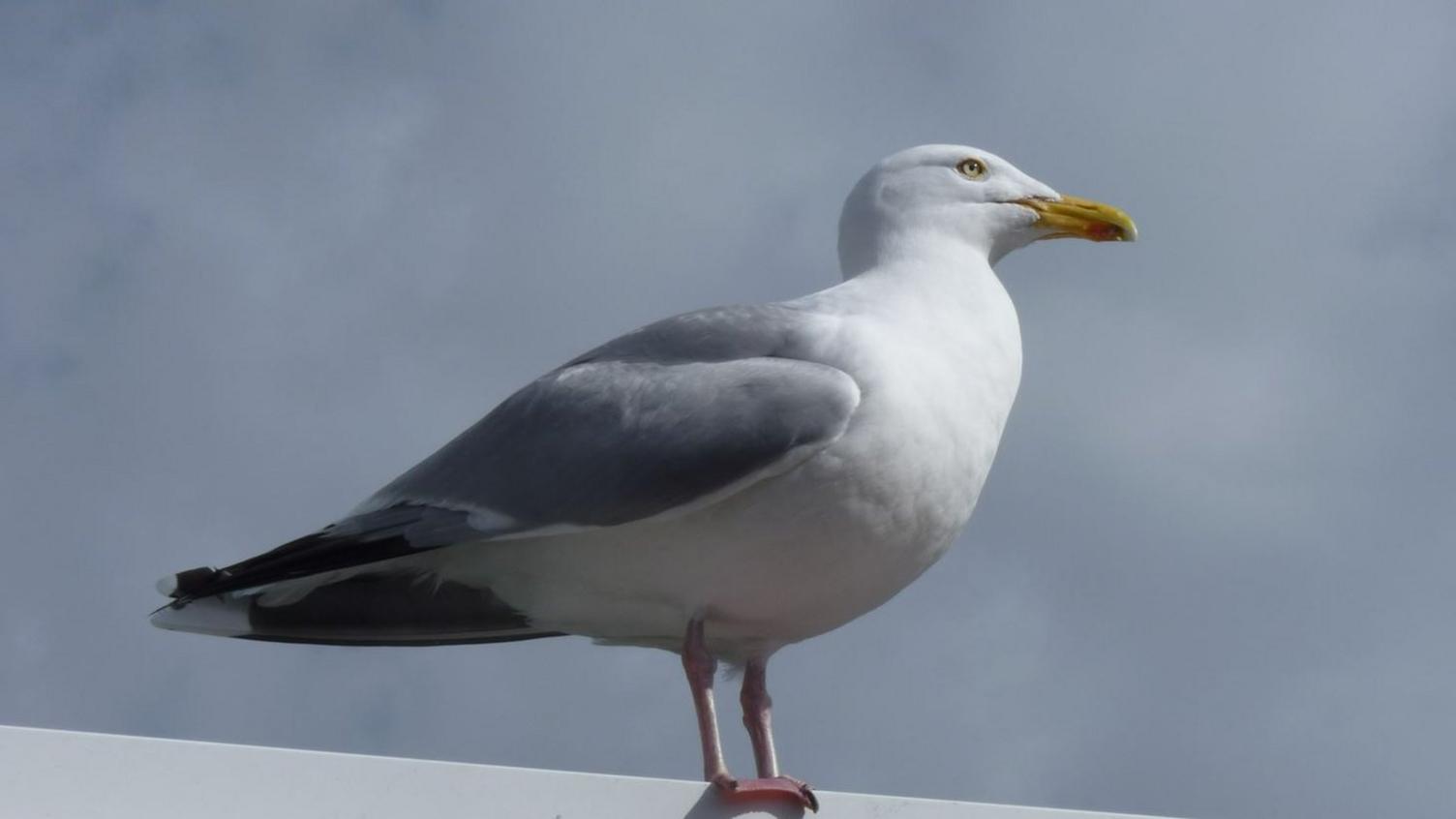Should seagulls still be protected in Jersey law?
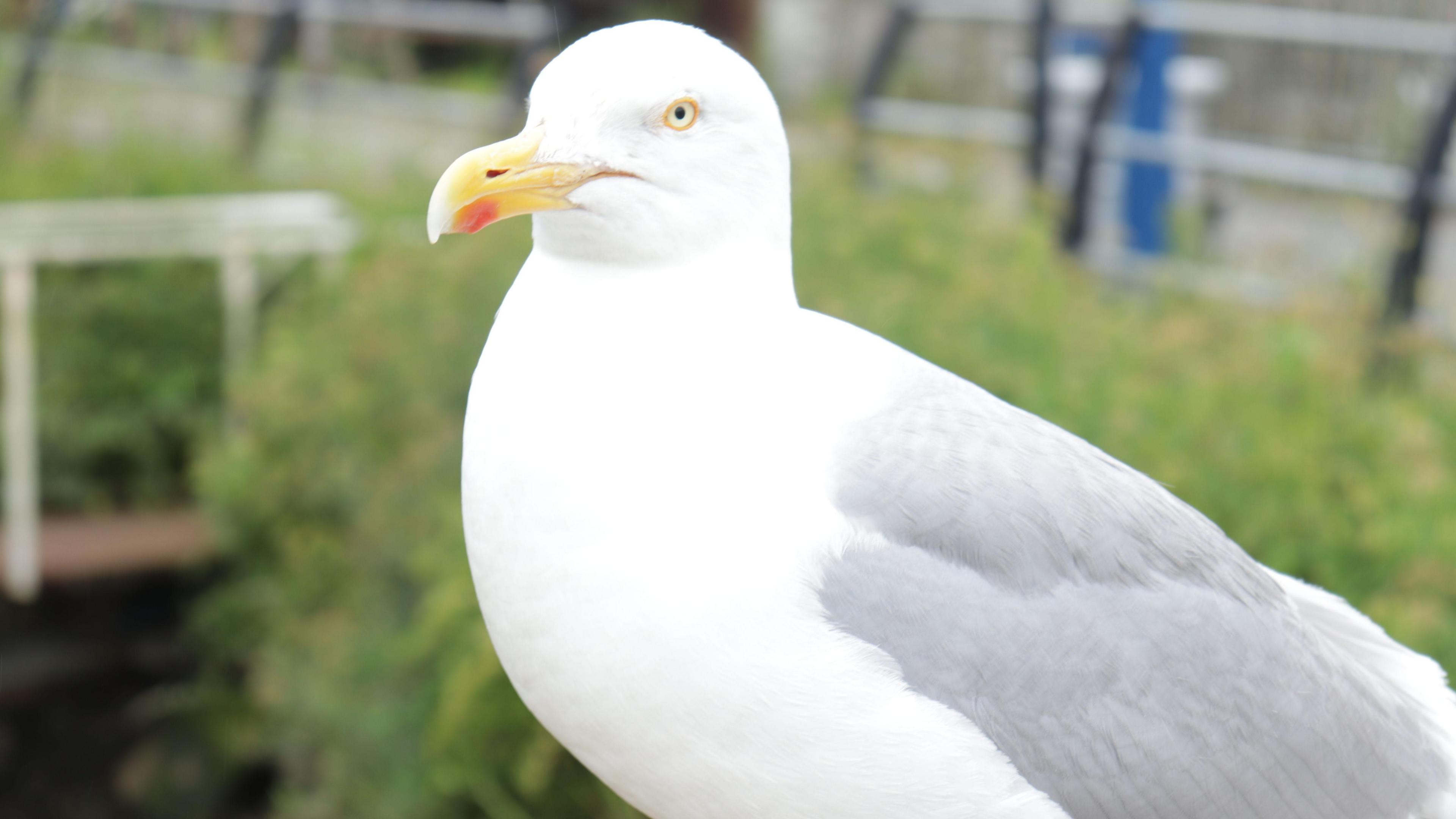
Herring gulls are protected in law but are their numbers still falling?
- Published
In St Helier and parks around Jersey, the seagull population is blamed for stealing food and being a nuisance. So should gulls still be protected under Jersey law?
There are six different types that commonly breed in the British Isles and they are protected under the Conservation of Wildlife (Jersey) Law 2000, external.
For decades, gulls have been nesting on rooftops, which gives the impression their population is healthy amid concerns that coastal numbers are falling.
The birds are highly adaptable and opportunistic and experts believe that increasing sea temperatures has changed fish distribution and that this, along with overfishing, has driven gulls inland.
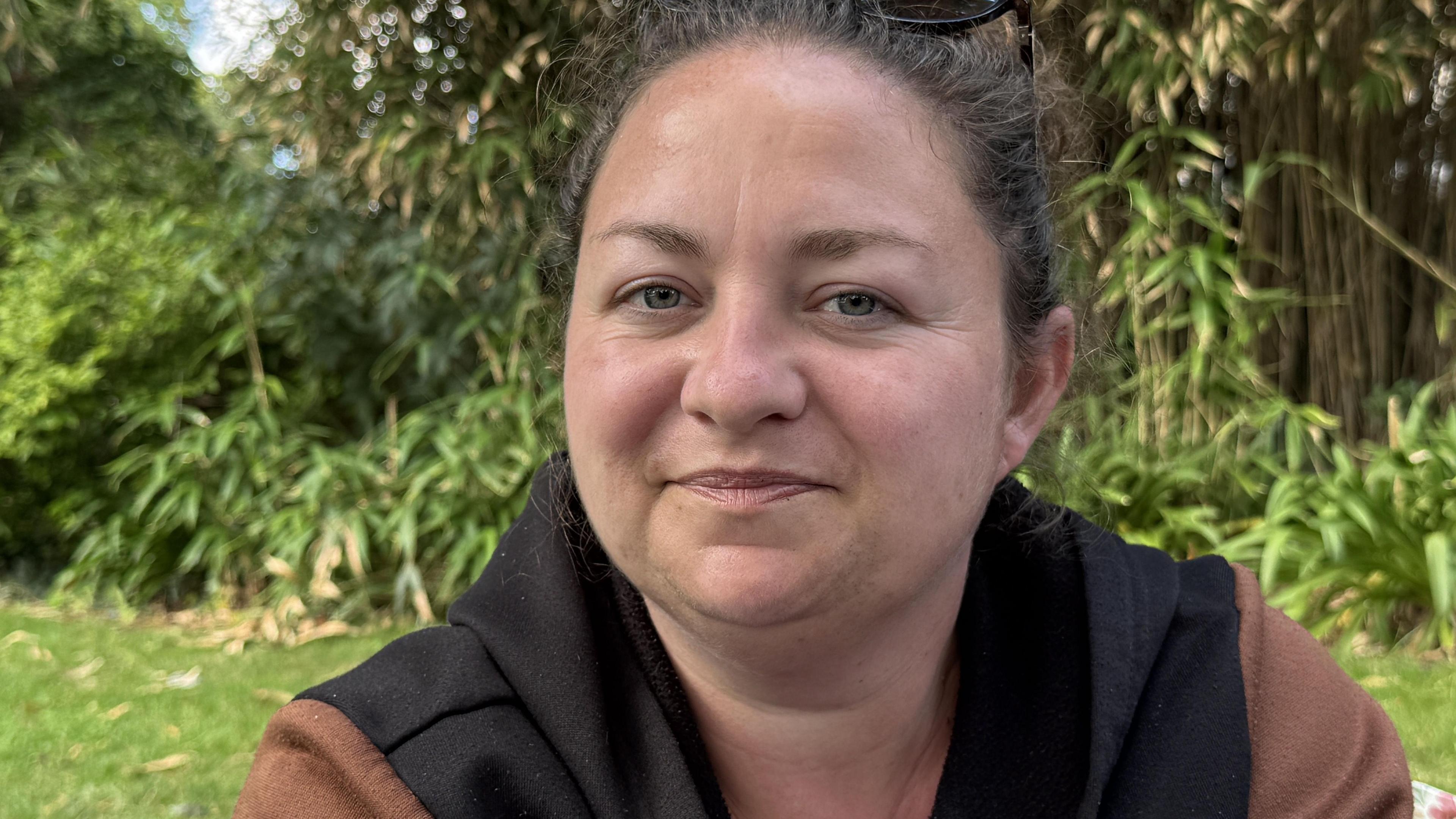
Claire O'Connor says her daughter is quite nervous after she was bitten by a gull
In Jersey, feeding wild birds carries a fine of up to £1,000 and, while there are signs warning people not to feed them, they tend to gather at cafes and parks where they know food is easy to come by.
Some parents, however, believe their numbers should be kept in check in built-up areas.
"My daughter last summer was eating an ice cream when a seagull came down and bit her finger while taking the ice cream away from her," said Claire O'Connor.
"She's quite nervous around seagulls now so if a seagull is near, she does panic a little bit.
"I wouldn't say they're endangered," she said. "We have a lot of them. It would be nice to control them, just to keep parks safer, really."
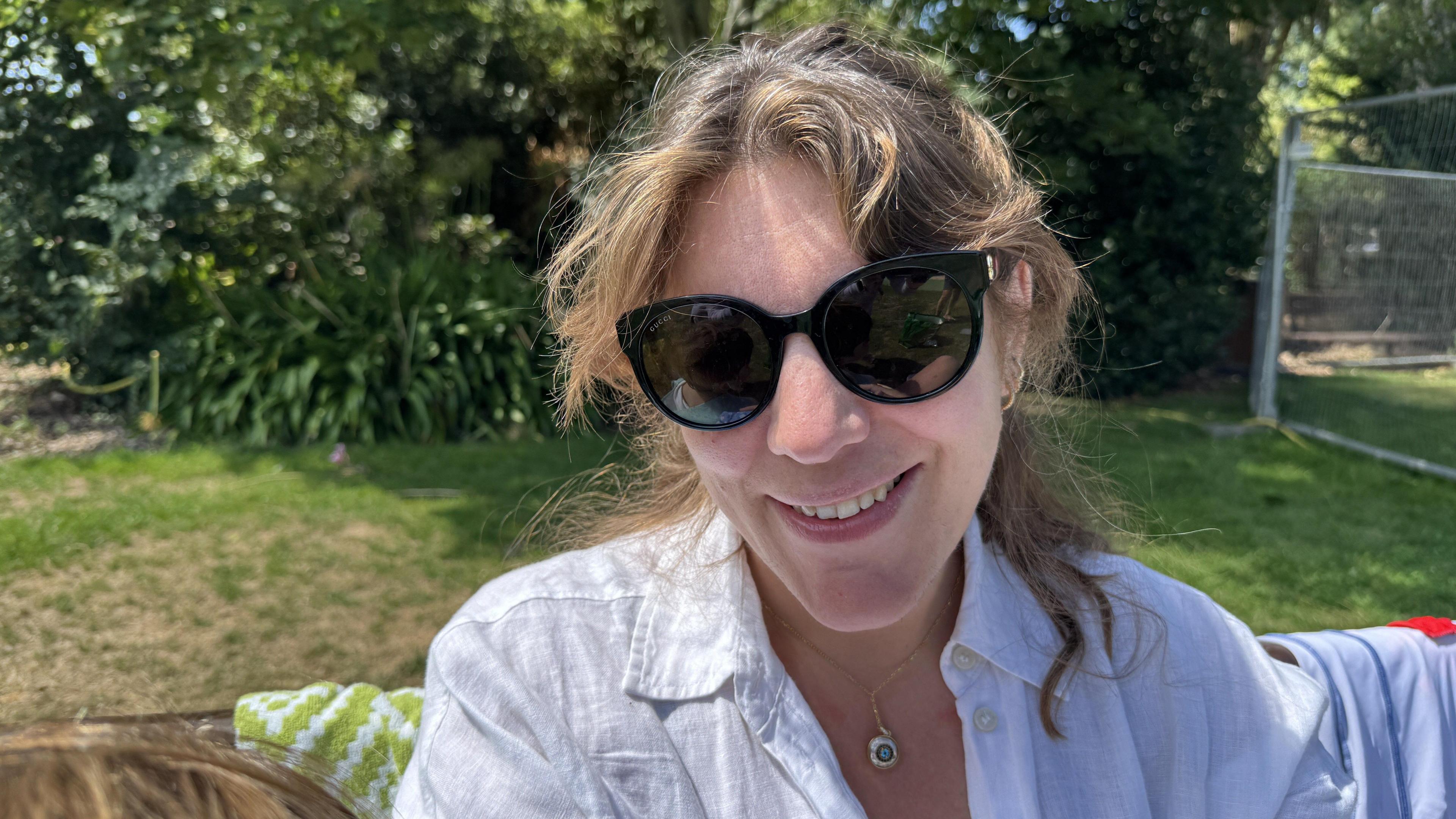
Jessica Langtree says she is often on high alert in case a gull should swoop on her children
Jessica Langtree has two young children and says seagulls are "a pest".
"If a dog was to do what a seagull is doing, swooping down onto mats and picking up food then we would all have an issue with that," she said.
She thinks numbers in built up areas should be controlled.
"There should be better prevention in areas like parks."
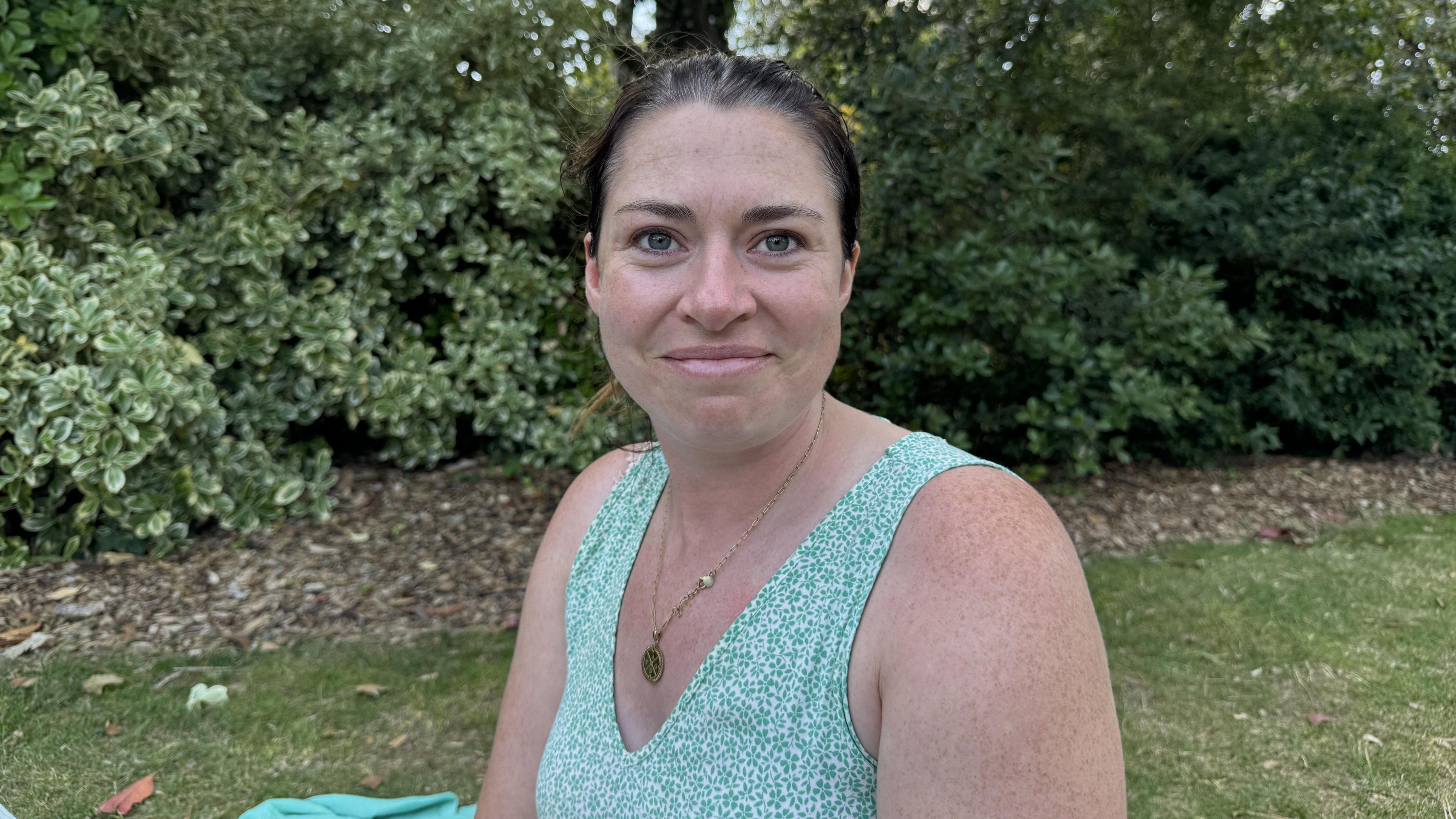
Alex Taylor says gulls are a bit scary for her children
Another parent, Alex Taylor, said: "To be honest, it feels as if confidence is increasing in seagulls. They're not afraid of diving in, taking food, being around people and seeming to intimidate them.
"I wouldn't say their numbers are dwindling.
"My daughter did at one point have a seagull swoop down to take her ice cream and it scratched her face. It hasn't had a long-lasting effect of scaring her but it obviously wasn't very nice."

Jersey's Environment Minister Deputy Steve Luce says gulls still need legal protection
Jersey's Environment Minister, Deputy Steve Luce, said gulls were "still in decline and they are protected".
"Numbers don't need to be controlled but people shouldn't feed them," he said.
"In certain parts of the island, where we have cafes and alfresco areas, they do become a nuisance," he explained.
"If people feed them, they get used to being fed and then they expect everybody who is eating food to feed them and they can become aggressive and that leads to problems."
All gulls, their nests, eggs and chicks are protected in law and can only be moved by licensed pest controllers.
Having the protection means it is illegal to intentionally hurt or kill any gull or to take, damage, or destroy an active nest or its contents.
The law does recognise that in some circumstances control may be necessary and action can be taken to ensure public health and safety.
This is done by licensed individuals who adhere to strict codes of conduct.

Ornithologist Mick Dryden says gull numbers have plummeted in the past 30 years
Mick Dryden is a Jersey based expert on birds and says the perception that numbers are strong is wrong.
He said the facts were that the numbers of herring gull had "gone down to about 35% of what they were in the 1990s".
He believes there are a number of factors contributing to falling numbers.
"Herring gulls don't go fishing at sea. They are scavengers and because we keep a very clean island, especially in town, there isn't the food available for them."
He says a small number of gulls disturb diners and try to snatch food.
"It's a small minority of gulls that have that sort of behaviour and I know that some of them have been dealt with over the years if they become a menace," he said.
"There's also a huge amount of disturbance on the beaches, which means if they're trying to find food on the beach, they're constantly being disturbed. Dogs put them up in the air and they're spending time not feeding when they should be feeding."
Follow BBC Jersey on X, external and Facebook, external. Send your story ideas to channel.islands@bbc.co.uk, external.
- Published15 August 2024
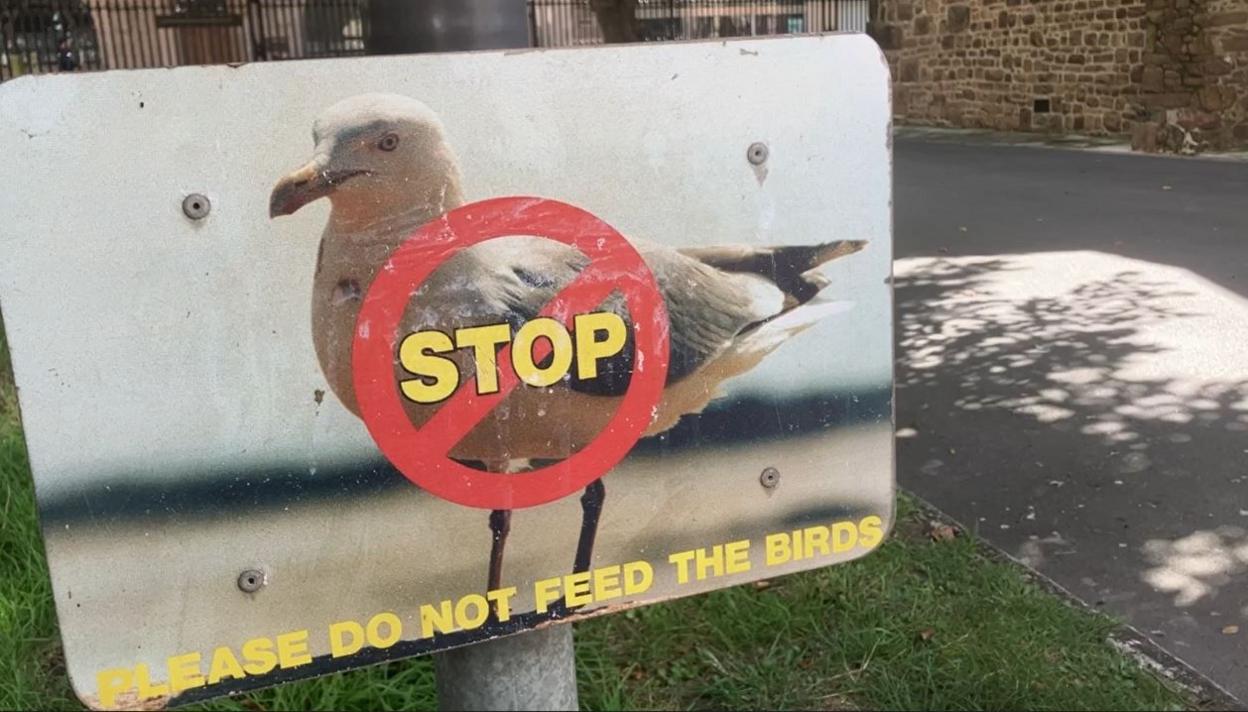
- Published8 June 2023
